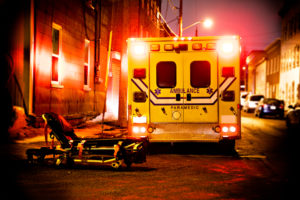The Court of Appeals for the Tenth Circuit answers that question in Ritch v. Carrabba’s Italian Grill, LLC, No. 17-5032 (10th Cir. Jan. 3, 2018).
In 2013, Linda Ritch (“Ritch”) dined at a Carrabba’s Italian Grill, LLC (“Carrabba’s”) restaurant in Tulsa. After the meal, Ritch slipped and fell while walking in the restaurant. She later filed suit in Oklahoma state court, alleging negligence, saying Carrabbas was liable for the injuries that resulted because it had breached its duty to keep the restaurant premises safe.
The district court granted Carrabbas’ motion for summary judgment, holding that Ritch failed to present evidence sufficient to establish a genuine dispute of fact that Carrabba’s breached a duty owed to her. Ritch appealed.
Under Oklahoma law, to prevail on a negligence claim, a party must prove three elements: first, the existence of a duty on the part of the defendant to protect plaintiff from injury; second, defendant’s breach of the duty; and third, that the proximate cause of the injury was the breach of that duty.
Ritch was an invitee under Oklahoma law and that Carrabba’s owed her this duty. Here, the district court granted Carrabba’s summary judgment because Ritch did not produce evidence that Carrabba’s breached its duty of care to her. Ritch testified she fell in the hallway leading to the restaurant’s bathroom, near the bar and a beverage station, on one of the busiest nights of the year, and that the jury could reasonably infer that a Carrabba’s employee spilled the substance or that it leaked from one of these locations and that the substance was in place long enough before her fall for Carrabba’s to have had actual or constructive knowledge of it in time to take corrective action.
This Court says the evidence presented doesn’t show that Carrabba’s breached its duty of care to her by either creating the offending condition or by failing to warn her or correct the condition after having actual or constructive notice of it. However, under Oklahoma law, an inference of negligence must be based upon something other than mere conjecture or speculation.
Ritch also states Carrabbas’ knowledge of the spill can be inferred from her evidence reporting that Carrabbas’ manager gave Ritch her card and acknowledged fault on the night of the accident. This evidence is immaterial to the summary judgment analysis. As the lower court properly found, what constitutes fault is a legal determination and this evidence doesn’t demonstrate that employees knew or should have known of the substance on the floor in time to warn Ritch or remove the hazard.
This Court affirms summary judgment for Carrabbas because Ritch failed to meet her burden of presenting evidence from which a reasonable juror could conclude that Carrabbas breached its duty of care to her.

Nationally recognized litigation attorney Thomas Metier practice areas include traumatic brain injuries, spinal cord injuries, trucking accidents and motor vehicle accidents. He is licensed to practice in Colorado, Wyoming, the U.S. District Court–District of Colorado, and the U.S. District Court–District of Wyoming, the 10th Circuit Court of Appeals and the U.S. Supreme Court.













Comments for this article are closed.